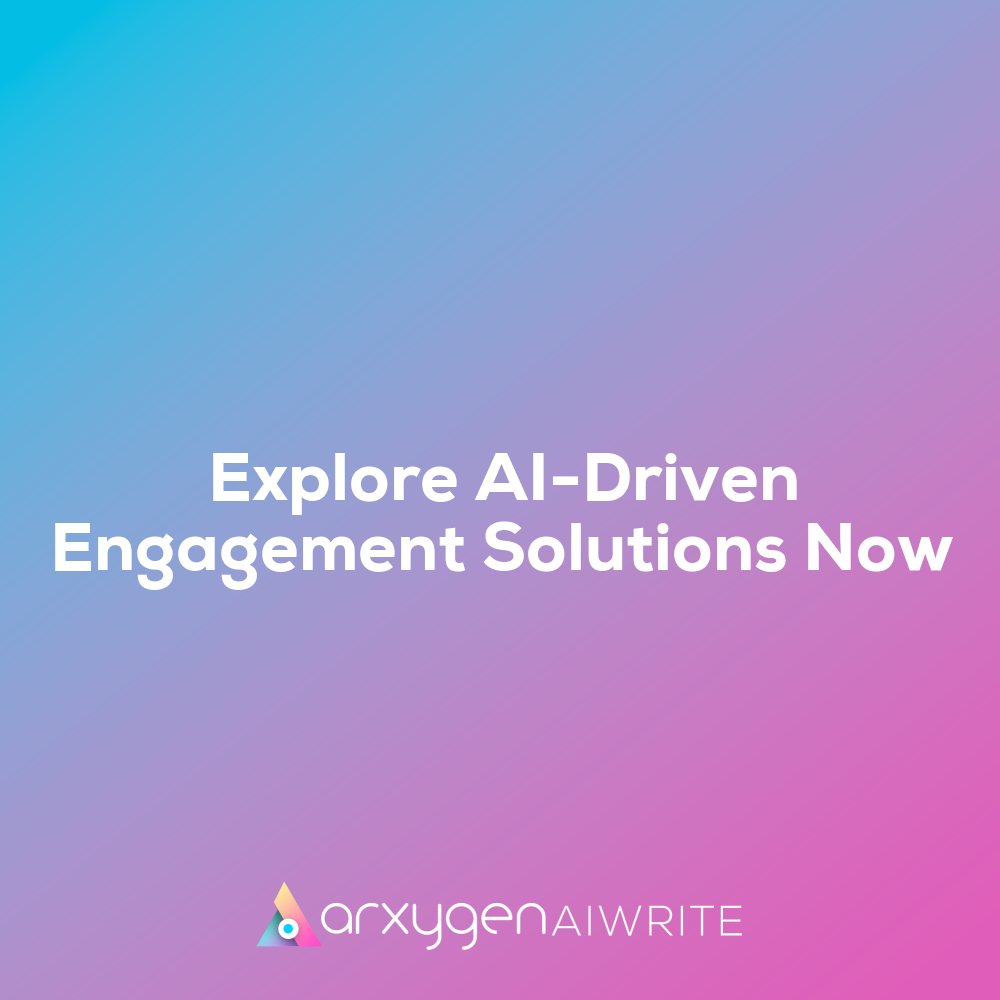How About We Talk About AI and Customer Engagement?
Imagine walking into a café where the barista remembers your name and your usual order—that’s the magic of AI in action! Many businesses are harnessing artificial intelligence to create a personalised experience that keeps customers coming back. For instance, retail giants are using AI-driven recommendation engines to suggest products based on past purchases, making shopping not just easier but also more enjoyable. Meanwhile, customer service has been revolutionised through chatbots that not only respond instantly but also learn from interactions to improve their assistance over time.
“With tools that can anticipate needs and adapt accordingly, customers are not just numbers on a spreadsheet—they’re valued individuals whose experiences matter deeply.”
One notable case is a global airline that deployed AI to streamline its customer interactions, resulting in quicker response times and higher satisfaction rates. By analysing data from previous flights and passenger preferences, they crafted tailored offers that resonated with individual travellers. This level of personalisation isn’t just a trend; it’s becoming essential for businesses wanting to stay relevant in today’s fast-paced market.
Why AI is the Future of Customer Engagement
As companies continue to explore innovative ways to connect with their audiences, it’s clear that embracing AI technologies will pave the way for more efficient and meaningful relationships. With tools that can anticipate needs and adapt accordingly, customers are not just numbers on a spreadsheet—they’re valued individuals whose experiences matter deeply. So, if you’re looking to elevate your engagement strategy, diving into the world of AI might just be your next best move!
Let’s Chat About How Personalised Experiences Come from Data Insights
In today’s fast-paced world, businesses are turning to AI-driven analytics to truly get to know their customers. These advanced tools can sift through vast amounts of data, revealing hidden patterns in customer preferences and behaviours that might otherwise go unnoticed. Imagine being able to anticipate what your customers want before they even have to ask! This level of understanding not only enhances the overall experience but also fosters loyalty, as customers feel valued and understood. However, with great power comes great responsibility; it’s crucial for businesses to prioritise data privacy and ethical considerations when implementing these strategies. After all, customers need to trust that their information is handled with care and respect.
Why Ethical AI Engagement Matters
The challenge lies in finding that balance between harnessing data for engagement and protecting individual privacy. When organisations communicate openly about their data practices, they build stronger relationships with their audience, which ultimately leads to more meaningful interactions. Embracing ethical AI not only safeguards consumer trust but also positions businesses as leaders in responsible engagement practices.
What’s Next for AI-Driven Engagement Strategies?
Businesses need to embrace an agile approach to keep up with the ever-changing landscape of artificial intelligence. Gone are the days when companies could afford to sit back and wait for trends to unfold; adaptability is now crucial. By adopting flexible strategies, organisations can respond swiftly to new developments, ensuring they remain relevant in a competitive market. Imagine a scenario where your customer engagement tools evolve as quickly as consumer preferences do.
As we look ahead, several emerging technologies promise to revolutionise how we connect with customers. Chatbots are becoming more sophisticated, offering personalised interactions that make customers feel valued and understood. Meanwhile, virtual reality (VR) is poised to transform the shopping experience, allowing consumers to immerse themselves in a brand’s universe without leaving their homes. This kind of innovation doesn’t just enhance customer satisfaction; it creates lasting impressions that can lead to loyalty.
As these technologies advance, it’s important for businesses to consider how they can integrate them into their engagement strategies. Think about how a well-designed chatbot could not only handle inquiries but also predict customer needs based on past interactions. Or picture a VR setup that lets potential buyers explore products in a virtual showroom—how engaging would that be? As we venture further into this digital age, the possibilities for creating meaningful connections are limitless.

